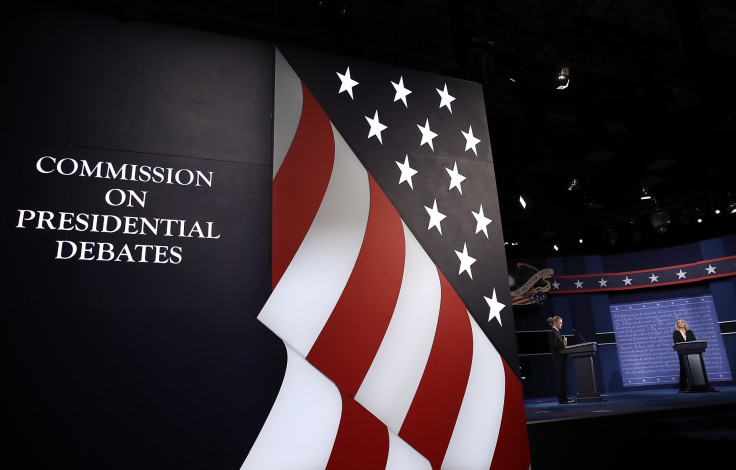Do Presidential Candidates Get A Bump In The Polls After Debates? Evidence Varies According To Reports

A strong performance in debates can provide a boost in the polls for a presidential candidate, but the extent of the post-debate bump may not matter when voters enter the voting booth.
In 2012, Republican nominee Mitt Romney received stronger marks for his performance in the first debate, while President Barack Obama appeared somewhat uninspired. Immediately after the debate concluded, political pundits quickly pounced on the incumbent.
"Certainly there was no Bobby Kennedy in the green room before Barack Obama came out tonight," MSNBC host Chris Matthew said of Obama's performance. "I don't know what he was doing out there. He had his head down. He was enduring the debate rather than fighting it."
In the days leading up to the debate, Obama had a five-percentage-point lead among registered voters, but Romney would draw even in polls that followed the debate.
Obama, however, rebounded in the polls when it mattered most: on Election Day. Obama defeated Romney in an electoral-college landslide, 332-206, and received almost five million more votes.
"Scholars who have looked most carefully at the data have found that, when it comes to shifting enough votes to decide the outcome of the election, presidential debates have rarely, if ever, mattered," George Washington University political scientist John Sides wrote in the Washington Monthly in 2012.
Democratic nominee Hillary Clinton and Republican nominee Donald Trump have plenty of time to overcome a potentially poor performance in the debate and win the election. Both Clinton and Trump had their ups and downs in the primary debates, and both managed to outlast the likes of Bernie Sanders, Ted Cruz and John Kasich.
The general election is 43 days away, and there are two more debates, as well as the vice-presidential debate. Between now and Election Day, the candidates will crisscross the country, making campaign stops and conducting nationally televised interviews, all the while pumping millions into advertisements. With the growth of social media, both candidates have ample opportunity to express their platform at any time.
With an audience that could reach 100 million, the debates could be considered more about political theater than anything else. Viewers may be more interested in a gaffe or a witty rebuttal on the big stage to further shape their opinion.
This debate may have all of that. Trump has a firmly established reputation of slamming his opponents, and even a moderator, in front of a national audience, while Clinton is considered a hard-nosed competitor who fights back harder when challenged.
And because of Trump's propensity to make off-the-cuff comments in this highly unconventional campaign, this debate may only feel more important than others, and while recent national polls have been erratic. A Bloomberg poll had Trump ahead of Clinton in a four-way race 43 percent to 41 percent, but a Monmouth University poll had Clinton leading Trump, 46 percent to 42 percent.
© Copyright IBTimes 2024. All rights reserved.












